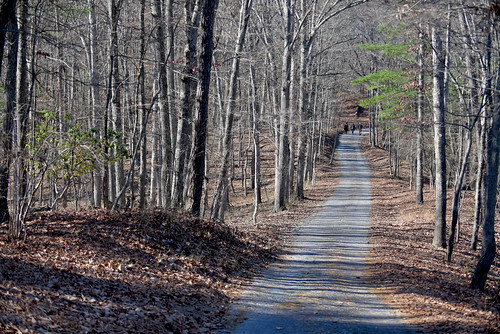 With record levels of investment in recent years, Maryland State Parks are expanding, with new parks and facilities being opened and existing properties undergoing upgrades. Statewide, landscape restoration projects are also underway to improve wildlife habitat, restore streams and shorelines, and plant trees.
With record levels of investment in recent years, Maryland State Parks are expanding, with new parks and facilities being opened and existing properties undergoing upgrades. Statewide, landscape restoration projects are also underway to improve wildlife habitat, restore streams and shorelines, and plant trees.These efforts are designed to ensure that Maryland’s award-winning state park system serves as a model of natural resource conservation that will inspire all Marylanders to join along with the Maryland Department of Natural Resources’ mission to preserve, protect, restore, and enhance our environment for this and future generations. In this and upcoming editions of Natural Resource Magazine, we will take a closer look at what’s new in Maryland State Parks.
Sideling Hill Creek State Park
A vast stretch of mountainous forest land nestled in the mountains of Allegany County, with a majestic view of the Potomac River, this land was long reserved for a few. Announced as a new addition to the Maryland State Park system in November 2022, Sideling Hill Creek State Park is now open for everyone to enjoy its wildlife and scenery.
The park provides a haven for 30 species listed as rare in Maryland. These species include butterflies, freshwater mussels, bats, and numerous plants. Sideling Hill Creek is a stocked trout stream that begins in Pennsylvania and runs 21.9 miles to the Potomac River.
The park’s wealth of natural and cultural resources, along with its geography and physical resources, make it an ideal location for a variety of activities and outdoor recreation, as recognized by its past owners, caretakers, and tenants. Their history is part of the park’s features today.
Within park grounds is Tabler Lodge, named for Dr. Homer E. Table, a well-known physician in the Town of Hancock in the early part of the 20th century. He built the lodge as a weekend getaway while remaining close to the community that he served.
Another lodge on the property is named for Aaron Straus, a Baltimore native born in 1864. He and his wife, Lillie, had no children of their own; however, they were known for their philanthropic efforts for Maryland’s youth. Aaron Straus had long been interested in scouting, and in 1945 he and his wife made a contribution to the Baltimore Area Council of the Boy Scouts of America.
With this funding the Council purchased and established the Lill-Aaron Straus Wilderness Area on the property. In 1956, the Aaron and Lillie Straus Foundation provided additional funds to further develop the property, which served as the Aaron Straus Boy Scout Camp until it was sold to the State of Maryland in 1991. That year, the Maryland Department of Natural Resources took ownership and leased the grounds to the Maryland National Guard for a training facility called Camp Baker. The facility was named for Brigadier General Thomas B. Baker, who died in 1998. Upon his retirement in 1997, General Baker had served for 40 years and climbed the ranks from private to general. He was transferred to the Maryland National Guard in 1976 and served as assistant adjutant general for the last eight years of his career.
When the Maryland National Guard decided to cease using the facility, the Department of Natural Resources began planning its reuse as part of the state park system. The park is located near the Woodmont Natural Resources Management Area, Sideling Hill Wildlife Management Area, and the Western Maryland Rail
Trail, providing visitors a variety of outdoor recreation opportunities in one region.
In addition to protecting the ecological and historic aspects of this property, Sideling Hill Creek State Park will be a tremendous destination for outdoor recreation in Western Maryland.

dnr.maryland.gov/publiclands
Article appears in Vol. 26, No. 2 of the Maryland Natural Resource magazine.
